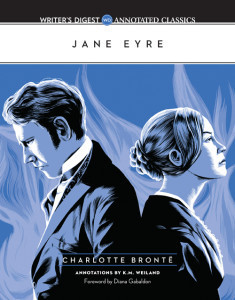Riley Adams's Blog, page 130
August 28, 2014
Keeping Our Books Current
by Elizabeth S. Craig, @elizabethscraig
My thirteen year old daughter uses an iPod device for most of her communications (which only works when on wi-fi) but also has a basic phone for when she’s away from wi-fi or needs to make calls. But she rarely uses the phone.
She discovered recently that she had voice mails on it. But she was having a hard time accessing them.
Sadly, I was doing something else every single time she brought this up over a period of several days. This is something I try hard to avoid as a parent. My goal is to be 100% focused on my children as they are speaking with me. But on these occasions I was either driving on an interstate highway in heavy traffic, cooking something rather complicated, or doing some sort of multitasking (poorly, I’m sure) during these conversations.
Finally, on the fourth or fifth occasion of her mentioning that she couldn’t access her voice mails, I sat down with her.
“Show me exactly what you’re doing,” I said.
“So, the voice mailbox asks me to enter my password and then hit ‘pound’,” she said. “And I’m positive I’m putting in the right password, but it keeps telling me I’m wrong.”
“Show me,” I said.
She then proceeded to hit the asterisk on her keyboard.”
“Whoa, whoa!” I said, “That’s not the pound key!”
She frowned at me. “It’s not? Which one is pound?”
I pointed to it.
“That one? But that’s the hashtag.”
I stared at her. So…this generation doesn’t even know what a pound symbol is?
“It is a hashtag. But it used to be called ‘pound,” I explained. “It’s also called a number sign.”
“Well, why wouldn’t they call it a hashtag? That’s what it is!” she said in complete frustration.
It reminded me again about the huge gulf between generations. It feels like it’s constantly widening with the quickly changing technology. And there are only 30 years between my daughter and myself.
This made me think…again…about my books and keeping them current.
Although my strategy may eventually change, I’m now making very few references in my books that could potentially date them.
The times when I do make references (usually to technology, but now I’m even leery about mentioning Saturday mail delivery, etc.) I make note of them in a separate document.
There will be a time when I won’t mind that my books are charmingly dated. But that time might honestly be after I’m dead. Right now, I’m finding the appeal in making my Myrtle stories as timeless as I possibly can.
One thing about digital publishing is that we can always go back in and tinker with it. I guess that’s a blessing and a curse.
This is not to say that I don’t read books that act as period pieces because I do and I love them. I’m just not at the point that I want my books to be that way. If I know I’m reading a book first published in the 70s, a reference to a pay phone or a rotary phone isn’t a bit jarring. But it could be distracting to a reader who wasn’t immediately aware they were reading an older book….and digital books don’t yellow like mass market paperbacks.
Right now, I wouldn’t want a reader to hit a wall with my story the way my daughter did with the pound symbol.
At some point I suppose I’ll let go of this, although I’m not sure when that will be. Heck, maybe I won’t….maybe I’ll include eccentric provisions in my will instructing my poor executor to make regular updates to my books. Complete with a list of all questionable references that might require updating.
Technology is so integrated into our daily lives that we can’t not talk about it. But my references are fairly general. How do you feel about dated books? Do you deliberately avoid mentioning Twitter or LinkedIn in your stories? Would you ever consider updating your books…or are you already updating them?
The post Keeping Our Books Current appeared first on Elizabeth Spann Craig.
August 24, 2014
How to Use Backstory to Keep Readers Reading
Backstory is a weapon. And just like any weapon, it can end up doing more harm than good to those who wield it without proper experience and care. But in the hands of a writer who knows exactly what it’s capable of and how to wield it to advantage, backstory can take even ordinary stories to extraordinary places.
Arguably, the most important function of backstory is its ability to hook readers’ curiosity. Forget explaining the protagonist’s past and what motivates him. Try not explaining it. When we let readers know there’s something delicious and dark in a character’s past, without telling them what that something is, we’ll hook their curiosity so deeply they’ll keep reading just to solve the mystery.
Charlotte Brontë understood how to wield the weapon of backstory as well any author. In her beloved Gothic romance Jane Eyre (which I analyze in-depth in my book Jane Eyre: The Writer’s Digest Annotated Classic), she creates almost her entire plot out of the tantalizing hunt for the backstory. What can you learn from her and how can you apply it to your own novel? Start by answering the following questions.
What Is Your Backstory?
Before you can use backstory to hook readers, you first have to have a backstory. When creating your characters’ histories, look beyond just the obvious necessities of birthplace and parents. Look for secrets. Look for tragedy and shame. Look for hidden motivations. You don’t want to bore readers with tedious home videos. You want to thrill them with tabloid-worthy escapades.
Protagonist Jane Eyre’s tragic backstory is shared straight-up (for the most part). However, the story is powered by her need to uncover the shocking history of her mysterious employer Mr. Rochester. Something strange and possibly supernatural is afoot in the tower of Mr. Rochester’s Thornfield Hall, and he hints to Jane, again and again, that the mystery is all tied up in the sins of his youth. What better incentive for readers to keep reading?
How Does Your Backstory Power the Plot?
Even relatively mundane backstories can capture readers’ attention, but only if they matter to the story as a whole. An outrageous skeleton in the family closet only becomes interesting if it affects the outcome of the central conflict. Why does the discovery of the backstory matter to the protagonist? How will it help or hinder him in obtaining his main story goal?
Mr. Rochester’s history isn’t important just because Jane happens to be curious about him. As it turns out, its revelation—in one of the most enduringly and delightfully shocking moments in literature—affects Jane’s every hope of happiness and love. Readers are more than just curious about Brontë’s backstory; they care about the backstory because of how sharply it will turn the plot and affect all the characters.
What Is Your Backstory’s Hook?
Once you’ve come up with a great backstory and figured out why it is an integral piece within your main plot, you then have to artfully plant its hook. You must let readers know there is a great backstory without giving too much away. One or two solid details will often be enough to get the ball rolling, especially if you solidify their importance by making some of the characters adamant about hiding the past, just as other characters are adamant about uncovering it.
Brontë builds her hook into the very walls of Thornfield Hall. From the moment Jane arrives in the symbolically dark and dusty manor, readers sense something is afoot. The housekeeper warns Jane to stay away from the tower, Rochester himself speaks of the great mistakes of his youth, and creepy laughter wafts through the halls at night. With minimum effort, Brontë hooks her readers for the long haul.
How Can You Tantalize Readers With Clues?
After that first hook, keep the clues coming. To some extent, you can repeat some of those clues, since all you’re needing to do is keep reminding readers of their curiosity. But eventually, you’re going to have to add new information. The trick, of course, is to provide new clues to whet the readers’ appetite without giving away the whole mystery.
A good rule of thumb on backstory is to avoid sharing information until it becomes vital to the story. Clues need to be more than just breadcrumbs of information; they need to each be catalysts that drive the plot.
Brontë is one of the best at scattering her clues. She deftly adds new information, leading readers right up to the brink of the truth, only to cleverly misdirect them into believing what they think is the truth can’t possibly be right.
Why Will Your Backstory’s Payoff Matter to the Story?
Readers wait throughout your entire story to reach the truth about the backstory. You can’t afford to disappoint them. This is why it’s so important to come up with a humdinger of a backstory in the beginning. If you tantalize readers with promises of shocking discoveries only to back off in the end and say, “Surprise! The butler did it!”—they’ll probably chuck your book across the room.
Brontë perfectly times the revelation of Mr. Rochester’s backstory. The revelation arrives at the crucial Third Plot Point (at the end of the Second Act), which allows it to be the catalyst that powers Jane’s decisions and actions throughout the climactic Third Act. Every bit as important as the timing, Rochester’s backstory is just as powerful and moving as Brontë promised her readers it would be. Anything less, and we would have been disappointed. Instead, we were transported.
Powerful backstory can elevate otherwise commonplace stories to astonishing heights. Without Rochester’s backstory, Jane Eyre is just another nice tale of a poor orphaned governess falling in love with her wealthy employer. With that backstory, it has become a timeless classic that has thrilled and moved centuries’ of readers. With the right backstory, your story could do the same!
K.M. Weiland lives in make-believe worlds, talks to imaginary friends, and survives 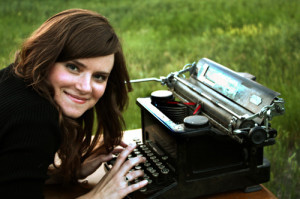 primarily on chocolate truffles and espresso. She is the IPPY and NIEA Award-winning and internationally published author of the Amazon bestsellers Outlining Your Novel and Structuring Your Novel. She writes historical and speculative fiction from her home in western Nebraska and mentors authors on her award-winning website Helping Writers Become Authors.
primarily on chocolate truffles and espresso. She is the IPPY and NIEA Award-winning and internationally published author of the Amazon bestsellers Outlining Your Novel and Structuring Your Novel. She writes historical and speculative fiction from her home in western Nebraska and mentors authors on her award-winning website Helping Writers Become Authors.
The post How to Use Backstory to Keep Readers Reading appeared first on Elizabeth Spann Craig.
August 23, 2014
Twitterific Writing Links
by Elizabeth S. Craig, @elizabethscraig
Twitterific links are fed into the Writer’s Knowledge Base search engine (developed by writer and software engineer Mike Fleming) which has over 23,000 free articles on writing related topics. It’s the search engine for writers.
Screenwriting Lessons: ‘The Social Network’: Handling Exposition: http://ow.ly/ApZcW @gointothestory
Don’t forget your name. That’s what sells books. http://ow.ly/ApZLL @venturegalleries
5 Things Learned While Writing a Novella: http://ow.ly/Aq009 @YAMisfits
Scare Quotes Are Not All That Scary: http://ow.ly/Aq02e @CSLakin
Uses for Helping Verbs: http://ow.ly/ApZoN @writing_tips
Things to Think About When Writing Strong Women: http://ow.ly/AtSBW @AdamDreece
8 ways to encourage inspiration: http://ow.ly/AtStG @hjwilliams5
The Secret to Writing: http://ow.ly/ADa2x @JLArmentroutFan
Don’t Be Boring: Hints for Better Bookstore Events & Other Presentations: http://ow.ly/AtSLg @randysusanmeyer
4 Steps to the Ultimate Compelling Villain: http://ow.ly/AtSWP @melissagmcphail
Writers Who Published Great Books Before Age 25: http://ow.ly/AtSmz @flavorwire
Why we should give up our publishing dream (and self-publish instead): http://ow.ly/AtRu4 @creativindie
Why You Should Be Mercilessly Hacking Apart Your Favorite Stories: http://ow.ly/ApZP2 @KMWeiland
Getting genetics right in fiction: http://ow.ly/ApZFd @DanKoboldt
How To Write a Fight Scene: http://ow.ly/ApZTN @doc_awesomeo
Character Skills and Talents: Promotion: http://ow.ly/ApZNl @angelaackerman
Join today’s #FutureChat live chat on digital publishing topics:: 4 p.m. London time, 11 a.m. EST , 3 p.m. GMT (now) with @Porter_Anderson
5 Silver Linings of Having A Day Job: http://ow.ly/ApZQH @chris_shultz81
Twitter for Writers: 7 Quick Tips: http://ow.ly/ApZgh @Belinda_Pollard
10 Reasons We’re Not Succeeding as Writers: http://ow.ly/ApZo5
7 Steps to Creating a Flexible Outline for Any Story: http://ow.ly/ApzaG @kmweiland
Leading into a flashback: http://ow.ly/ApzS3
Getting to a New Adult State of Mind: http://ow.ly/ApzzX @ChanelCleeton
Choosing a Book Excerpt: http://ow.ly/Apzrp @StephenHise
Fixing prepositional phrases: http://ow.ly/ApAk9 @JordanMcCollum
Is Sitting Too Much Killing You? http://ow.ly/Apzo8 @lifehackorg
Screenwriting Lessons: “The Social Network” — Subplots: http://ow.ly/Apze6 @gointothestory
5 Things to Know about Working with Beta Readers: http://ow.ly/Apzvk @CKMacleodwriter @CarlaJDouglas
The Importance of Journaling: http://ow.ly/Apz73 @chrstnejschmdt
Self-Publishing for Academics: http://ow.ly/Apzcr @henrybaum
How a Writing Challenge Can Help You: http://ow.ly/ApzEJ @diymfa
21 Writing Tips from a Fledgling Writer: http://ow.ly/Apzip
Why You Need to Own Your Blog Site: http://ow.ly/AoBsR @ninaamir
The Only Perfect Novel There Is: http://ow.ly/AoBA8 @juliettefay
Organize Your Writing Project(s) via a Spreadsheet: http://ow.ly/AoDhV @RomanceUniv
Before You Hit Send… http://ow.ly/AoBpf @writerashley
Things to Consider When Considering Self -Publishing: http://ow.ly/AoBxu @srjohannes
Important items to beware in a publishing contract: http://ow.ly/AoCGa @SusanSpann
Digital publishing and children: http://ow.ly/Awnby @Porter_Anderson @camillelaguire
3 Reasons to Consider Writing a Novella Right Now: http://ow.ly/AoD96 @kmweiland
9 Misconceptions About Space Travel: http://ow.ly/AoCRx @DanKoboldt
5 Tips for Titles: http://ow.ly/AqTHl @authorterryo
Lists for Life and Writing: 5 Lessons Learned: http://ow.ly/AwtYM @freshfiction
How to Digitally Organize Your Writing Files: http://ow.ly/AoBCK @amshofner
Know When to Act Out (A Scene): http://ow.ly/AoD5A @lindasclare
Guide to The Snowflake Method: http://ow.ly/AoDmf @SnowflakeGuy
Writing as Therapy: http://ow.ly/AoBn3 @fictorians
Writers’ Conference Tips: http://ow.ly/AoB0M @ForewordLit
From Distraction to Inspiration in 4 Easy Steps: http://ow.ly/AoB4c @AnthonyEhlers
A Crash Course in Horror Subgenres: http://ow.ly/AoB5y @MarcyKennedy
Building Suspense in Captivity: http://ow.ly/AoB8F @RayneHall
Talking About Conflict: Harmony vs Discipline: http://ow.ly/AoAYT @woodwardkaren
How To Write A Screenplay You Can Sell: http://ow.ly/AoAPN @goodinaroom
14 Book Covers Before And After They Were Turned Into Movies: http://ow.ly/AoAID @IsaacFitzgerald
Picking the perfect name for your character: http://ow.ly/AoAxm @JordanMcCollum
Writers Who Didn’t Study Writing: http://ow.ly/AoAMv @BookishHQ
Why telling is as important as showing: http://ow.ly/AoACE @standoutbooks
Script To Screen: “The Cider House Rules”: http://ow.ly/AoAKz @gointothestory
Worried You Won’t Follow Through? Bet Your Friends. http://ow.ly/AoAVw @99u
Coping rituals in crime fiction: http://ow.ly/AqU2Y @mkinberg
4 Things NOT To Do When Writing Mysteries: http://ow.ly/AqTNb @clarissadraper
‘If Only I Could Find the Time to Write’: http://ow.ly/AoMI8 @brandigranett
5 Creative Writing Projects You Can Do Today: http://ow.ly/AoMGl @makeuseof
The 6 Habits of Highly Tormented Writers: http://ow.ly/AoN5S @gripemaster
Build Your Writing Practice: http://ow.ly/AoMVt @diymfa
Lev Grossman: My depression helped inspire the Magicians trilogy: http://ow.ly/AoIsr @salon @magiciansbook
High Concept Defined: http://ow.ly/AqTpT @SusanKelley
Robert McKee And Characterization vs Character: http://ow.ly/AoMyh @woodwardkaren
Prose & Conversation: Death of the Short Story: http://ow.ly/AoMsr @cathinnorway
Plotting For Pantsers: http://ow.ly/AoMwN @edenbaylee
Novel Stuck? 3 Ways to Get Unstuck: http://ow.ly/AnHl8 @fictionnotes
Romance 101: Marriages of Convenience: http://ow.ly/AnHzA @_ImAnAdult
Keeping track of small details in our story: http://ow.ly/AnHql @JodyBaileyDay
Mystery Writing–Familial DNA: http://ow.ly/AqSyz @djswykert
How to write a terrible novel: http://ow.ly/AnH44 @karenschrav
Screenwriting Lessons: “The Social Network” — Narrative Framework: http://ow.ly/AnFNv @gointothestory
Writing Hacks During the Revision Process: http://ow.ly/AnGn3 @SeanGrigsby
How To Stop Twitter AutoDMs: http://ow.ly/AnG3R @loriculwell
How to Add Meaningful Subplots to Your Novel: http://ow.ly/AnGwH @CSLakin
6 Branding Tips for Writers and Authors: http://ow.ly/AnG6j @ninaamir
Tips For Gaining New Followers on Your Blog: http://ow.ly/AnFRO @RamiUngarWriter
Visual Writing Prompt: A Harmless Vice: http://ow.ly/AnF1Z @megwolfewrites
The post Twitterific Writing Links appeared first on Elizabeth Spann Craig.
August 22, 2014
Plot and Character Motivation
By Elizabeth S. Craig, @elizabethscraig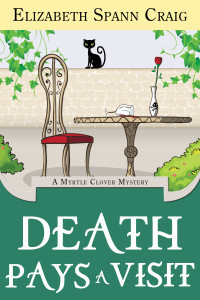
Sometimes I wonder why I outline at all. I never seem to stick to them.
In the book that I’m currently writing (already covered, right, since it’s so tricky to reserve cover designers closer to release), I decided a few days ago to change the killer. If I’d continued on the path I was going with my outline, I thought there would be a good percentage of people who would figure out the murderer before the end of the book. The suspect that I decided to use instead would be a real surprise and would get me that twisty ending that I wanted.
The problem was…there was no motive at all for this person to have murdered the victim—that’s why the reader was going to be so surprised.
This was an easy enough problem for me to fix. I’d have the killer’s motive trickle in during the story—but not in an obvious way. There would be clues to the motive…clues that I would have to hastily distract from as soon as I planted them.
But fixing this problem reminded me that believable plots really do all come down to motive. Even in other genres.
If our characters act out of character to force a particular storyline, the plot is weaker.
We can enrich our stories by asking what drives each character—what they want most. That’s what motivates them to do all sorts of things: keep secrets, avoid other characters, argue, flirt, save money, spend money. Character driven stories sometimes feel as if they write themselves.
So if we find we’re manipulating a character to serve the plot, that’s when we need to sit down and figure out how to make the character’s motive in line with where we want the plot to go. Or be open to considering a plot change.
Often, it’s not a tough edit to make. I think it took only about thirty minutes to think up and then slip in the clues to the character’s motive and true nature to the plot. That’s not long to fix something that big.
How do you keep on track with character motivation? Have you ever had to alter a book to make a story align with motive?
The post Plot and Character Motivation appeared first on Elizabeth Spann Craig.
August 17, 2014
Mystery Writing–Familial DNA
by D.J. Swykert, @djswykert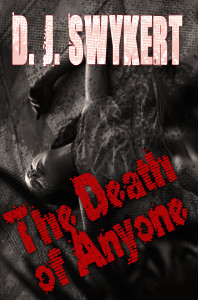
The Death of Anyone (Melange Books; February 2013 trade paperback and ebook formats) is a fictional story in which a Familial DNA search is a key investigative component. This is a unique DNA search technique not in common use, only two states even have a written policy. With forensic evidence increasingly important in solving current real-life cases and now being introduced into trials I thought it would make an interesting plot for a story.
I first heard about the use of Familial DNA working as a 911 operator in 2006. It came up in a conversation with officers working a case. I thought at the time it would make an interesting premise for a book. I began writing The Death of Anyone three years after leaving the department. I had just finished editing a first draft in the summer 2010 when news of The Grim Sleeper’s capture in Los Angeles using a Familial DNA search was released. I read with interest all the information pouring out of L.A. regarding the investigation and the constitutional admissibility issues confronting prosecutors.
The trial of alleged serial killer Lonnie David Franklin, known in the media as The Grim Sleeper, is scheduled to begin in 2015. Franklin will be the first person brought to trial on the basis of Familial DNA evidence in the U.S. Pretrial motions regarding Fourth Amendment civil rights violations have been ongoing for over four years.
The Grim Sleeper was caught because his son’s DNA was the closest match to DNA samples collected at the crime scenes in the database. Investigating Franklin’s son led them to investigate Lonnie David Franklin. But there was no direct DNA linking him to the crime scene until a matching DNA sample was obtained after his arrest. The admissibility issues are being thoroughly tested by defense attorneys.
Many legal analysts believe Familial DNA searches violate Fourth Amendment rights which guard against unreasonable searches and seizures. The courts may ultimately rule that searching among Familial DNA databases for partial matches would constitutionally be the same as the use of a generalized warrant to search someone’s house when there is no prior reason to suspect the person of wrongdoing, which citizens are constitutionally protected from.
Even Thomas Callaghan, the former head of the F.B.I.’s national DNA database, feared that Familial Searches might be legally vulnerable, since courts might view the searches as an attempt to use samples collected for one purpose for a very different purpose.
Just as we would consider it unreasonable to cast a wide net of suspicion without probable cause in general due to concerns of privacy, personal dignity, and unwanted intrusion in the lives of innocent citizens, we should be similarly concerned the identification of a suspect through partial DNA searches will contribute to further loss of freedoms as DNA databases grow and lead to ever more invasive investigative techniques. These are all constitutional issues that will come into play as the use of DNA science continues to progress towards solving criminal investigations and determining the guilt of suspects. Decisions will be made by the courts that will regulate just how invasive of civil rights law enforcement can proceed in the investigation of serious crimes.
I first heard about the use of Familial DNA working as a 911 operator in 2006. It came up in a conversation with officers working a case. I thought at the time it would make an interesting premise for a book. I began writing The Death of Anyone three years after leaving the department. I had just finished editing a first draft in the summer 2010 when news of The Grim Sleeper’s capture in Los Angeles was released. I read with interest all the information pouring out of L.A. regarding the investigation and the problems confronting prosecutors.
These are the same issues confronting Detroit Homicide Detective Bonnie Benham in The Death of Anyone. Bonnie has been transferred from narcotics for using more than arresting and is working the case of a killer of adolescent girls. CSI collects DNA evidence from the scene of the latest victim, which had not been detected on the other victims. But no suspect turns up in the FBI database. Due to the notoriety of the crimes a task force is put together with Bonnie as the lead detective, and she implores the D.A. to use an as yet unapproved type of a DNA Search in an effort to identify the killer. Homicide Detective Neil Jensen, with his own history of drug and alcohol problems, understands Bonnie’s frailty and the two detectives become inseparable as they track this serial killer.
DJ Swykert is a former 911 operator. His work has appeared in The Tampa Review,  Detroit News, Monarch Review, Lunch Ticket, Zodiac Review, Barbaric Yawp and Bull.
Detroit News, Monarch Review, Lunch Ticket, Zodiac Review, Barbaric Yawp and Bull.
His books include Children of the Enemy, Maggie Elizabeth Harrington, Alpha Wolves, The Death of Anyone and The Pool Boy’s Beatitude. You can find him at: www.magicmasterminds.com/djswykert. He is a wolf expert.
The post Mystery Writing–Familial DNA appeared first on Elizabeth Spann Craig.
August 16, 2014
Twitterific Writing Links
by Elizabeth S. Craig, @elizabethscraig
Twitterific links are fed into the Writer’s Knowledge Base search engine (developed by writer and software engineer Mike Fleming) which has over 23,000 free articles on writing related topics. It’s the search engine for writers.
Why joining a writing group may be the best thing you do: http://ow.ly/AhPc4 @standoutbooks
Hugh Howey weighs in on the Hachette and Amazon contretemps: http://ow.ly/AnFKb @HughHowey
The Crash: Braving Your Second Draft: http://ow.ly/AkI2Q @KMWeiland
How to Write Faster and Get Organized with Scrivener: http://ow.ly/AkG8e @writetodone
5 Tips for a Do-it Yourself Retreat: http://ow.ly/AkMbv @OrlyKonigLopez
Rumination Frustration: http://ow.ly/AkGVP @sarahrcallender
How Not to Seek a Literary Agent: The Perils of ‘Middleman’ Services: http://ow.ly/AkGHc @victoriastrauss
Libraries Dominate eBook Subscription Market | LitReactor http://ow.ly/AkGo4 @litreactor
45 Ways To Sabotage Your Social Media Success: http://ow.ly/AkMrP @mollygreene
4 Ways To Write Every Day: http://ow.ly/AkMid @woodwardkaren
Star Trek Writer’s Defense of Diversity in Sci-Fi: http://ow.ly/AkFZC @io9
The Invisible Writer: http://ow.ly/AkH9S @PhilipBoyle3 @writing_ie
Back cover copy that bores and blares: http://ow.ly/AkKpU @mbcollings
13 Great Facebook Pages for Writers: http://ow.ly/AkIaO @DanaStaves
The art of fan fiction: http://ow.ly/AkKNS @Chantegski
C.S. Lewis’s Ideal Daily Routine: http://ow.ly/AkFV7 @brainpicker
5 Weak Words That Are Sabotaging Your Writing http://ow.ly/AkIQv @missafayres
Titles that sing: http://ow.ly/AkG3E @nownovel
Soul-Crushing Things About Writing in 2014: http://ow.ly/AkHfR @philjourdan
The importance of good book cover design: http://ow.ly/AnFYY @ThomasEMcGee
3 Reasons to use CommentLuv on a Blog: http://ow.ly/AnFVP @trainingauthors
The Novelist as Ethnographer: http://ow.ly/AnG86 @IdeologyofLove
Tips for handling multiple plot lines: http://ow.ly/AnGDS
Establish the Nature of the Story’s Jeopardy: http://ow.ly/AnG1n @cockeyedcaravan
Has modern technology killed the spy thriller? http://ow.ly/AnGeP @CharlesCumming
Building Suspense In Your Novel — #WDC14 Tips from Mystery Author Jane K. Cleland http://ow.ly/AnF5G @sarawhitford
Promote Yourself And Your Books On Social Media Without Feeling Like A Soul-Selling Slime-Glob: http://ow.ly/AhRO5 @chuckwendig {lang}
The Staying Power of Some Books: http://ow.ly/AhO6q @rachelnseigel
The importance of keeping it professional on social media: http://ow.ly/AnFFC @Porter_Anderson @writerunboxed
Why Should Anyone Help Your Protagonist? http://ow.ly/AhQTw @Janice_Hardy
David Foster Wallace on Writing, Self-Improvement, and How We Become Who We Are: http://ow.ly/AhNX4 @brainpicker
What to do When Your Characters Rise Up Against You : http://ow.ly/AhOHo @drewchial
Ebook Pricing: Why 99 Cents Might Be a Mistake: http://ow.ly/AhPLr @GoblinWriter
How to Figure Out WHAT Your Character’s Arc Should Be: http://ow.ly/Ahs39 @kmweiland
The Art of Writing Back Copy: Boiling Your Book to its Essence http://ow.ly/AhR2l
Why Some Self-Published Authors Care How Hachette Prices Its Books: http://ow.ly/AhOpH @passivevoiceblg
What Shouldn’t be Included in a Novel: http://ow.ly/AhQLw @noveleditor
4 Effective Ways to Beat Writer’s Burnout: http://ow.ly/AhOhb @Write_Tomorrow
12 Publishing Shakers to Follow: http://ow.ly/AhPjz @MickRooney7777
7 reasons to make a list of scenes: http://ow.ly/AhPuT @writers_write
How to Market Your Fiction Writing Through the Brilliance of Other Authors: http://ow.ly/AhPF7 @storyrally
10 Writing Tips from J.R.R. Tolkien: http://ow.ly/AhPXp @JennyHansenCA
Women writers–be more assertive about the value of your work: http://ow.ly/AgcLl @AndiLit
Using Role-Playing to Rein in Your WIP http://ow.ly/AgdrW @mythicscribes
How To Find The Right Editor For Your Book: http://ow.ly/Agdgb @jenblood for @thecreativepenn
Critiques of paragraphs submitted for editing: http://ow.ly/AgcPY @GayleTowell
18 Essential Parts to a Successful Start-Up Indie Publisher’s Business Plan: http://ow.ly/Agdmb @ninaamir
On the Other Side of Failure: http://ow.ly/AgdvJ @JordanRosenfeld
17 Reasons to Write Something NOW http://ow.ly/Ag6lU @JoeBunting
Dangerous Tropes: The Deformed Villain: http://ow.ly/Ag6pQ @enderawiggin
Pushing Past Political Correctness: Writing Solutions for the Socially Conscious: http://ow.ly/Agd17 @btmargins
5 Reasons You Procrastinate Getting Your Book Done: http://ow.ly/Ag6gi @KristenEckstein
The 7 Deadly Sins of Prologues: http://ow.ly/AgcEr @kristenlambtx
12 Tips for Writing Blog Posts That Get Noticed: http://ow.ly/AgdkI @JodieRennerEd
Redefining Success in Order to Stay Sane: http://ow.ly/Agdph @CSLakin
Formatting a Mid-Scene Break: http://ow.ly/AgcUM @Dear_Editor
An author’s struggles with story timelines: http://ow.ly/Agd5D @JeffCohenwriter
How to Tackle Character Consistency: http://ow.ly/AgddD @MsBessieBell
Screenwriter Tips for Novelists: 3 Things that Keep Your Story on the Road (not the Goat Path): http://ow.ly/Ag6uA @HeatherJacksonW
4 Newsletter Basics for Authors: http://ow.ly/Ac7zL @a_crezo
29 Reasons to Do a Writing Challenge: http://ow.ly/Ac9mU @beccaquibbles
5 Things Every Screenwriter Should Know About Writing A Novel: http://ow.ly/Ac6tT @Abdaddy
5 Essential Brain Hacks for Fiction: http://ow.ly/Ac7HP @litreactor
From Inspiration to Publication: http://ow.ly/Ac6X2 @TDMcKinnon2012
7 Tips On Sci Fi Arenas / World Building In Your Screenplay Or Novel: http://ow.ly/Ac5JF @bang2write
5 Examples of Unauthentic Dialogue: http://ow.ly/Ac8Kf @justinmclachlan
Writing Doesn’t Make You a Better Writer: http://ow.ly/Ac5Rp @jamesscottbell
3 Top Tips for Writing for Social Media: http://ow.ly/Ac7UL @writers_write
4 Rules of Using Fake Words: http://ow.ly/Ac87j @mythcreants
When You Don’t Agree With Your Characters: http://ow.ly/Ac9gq @amiekaufman
How to fix a plot hole: http://ow.ly/Ac79U @Roz_Morris
DIY: Turn Your Manuscript Into A Physical Book: http://ow.ly/Ac7pz @woodwardkaren
Pros and Cons of the Learn by Doing Method: http://ow.ly/Ac5Y6 @mythcreants
Quick, Basic Tips for Writing a Riveting Short Story: http://ow.ly/Ac5Ah @Jodie RennerEd
How to Build a Scene: Leave the Hero and/or Audience with a Growing Hope and/or Fear http://ow.ly/Ac7ft @cockeyedcaravan
Reader Pet Peeves: http://ow.ly/A9ZLH @jodyhedlund
101 Writing Resources to Take You from Stuck to Unstoppable: http://ow.ly/A9Z2S @cynthialindeman
What to Expect When You’re Expecting (a book…) http://ow.ly/Aa17s @kristaphillips
Tips for pitching work: http://ow.ly/Aa1iV @KarenDuvall @RMFWriters
Back In 1909, They Were Already Trying To Define Science Fiction: http://ow.ly/A9Ywh @io9
5 Key Tips for Reaching Out for a Review: http://ow.ly/A9Zpb @nookBN
Royalty rates and earning out–an agent explains: http://ow.ly/A9Ysa @Janet_Reid
Writing by hand, or typing: when are you most creative? http://ow.ly/Aa1gJ @chrisrobley
Want More Conflict in Your Novel? Using D&D for Inspiration: http://ow.ly/Aa19d @kristenlambtx
7 Black Women Science Fiction Writers to Know: http://ow.ly/A9YYL @forharriet
8 Writer Tips To Keep Your Butt in the Chair: http://ow.ly/A9Yod @JordanDane
25 Word Lists for Writers: http://ow.ly/Aa1cz @CKmacleodwriter
10 Library Fellowships for Writers: http://ow.ly/Aa0y9 @A_WritersStudio
Invasion of privacy in crime fiction: http://ow.ly/Acp4q @mkinberg
Be Gone, Sanctimonious Defenders of the Supposed Literary Canon: http://ow.ly/A9ZL0 @NewDorkReview
5 Reasons to Write Every Day: http://ow.ly/A9YT7 @NikkiWoods
Self-Publishers Aren’t Killing The Industry, They’re Saving It: http://ow.ly/A9Ym1 @DavidGaughran
Sleep deprived sleuths in crime fiction: http://ow.ly/AcnPf @mkinberg
Wattpad: 14 Tips for Authors: http://ow.ly/A8cvp @outaprintwriter
How 1 writer got an agent’s attention: http://ow.ly/A8ddS @SDWriters
POV–Find the perspective you’re naturally good at: http://ow.ly/A8cIf @TherinKnite
The Hidden Dangers in Short-Form Contracts: http://ow.ly/A8cb8 @SusanSpann
With @EoinPurcell ‘s hiring at Amazon UK, we lose insightful commentary on publishing: http://ow.ly/AdhDl @Porter_Anderson
Why Book Review Blogs Should Embrace Self-Pubbed Books: http://ow.ly/A8c56 @Wiseink
7 Signs You Have a Creative Brain: http://ow.ly/Acl0L @PatrickRwrites
Should More Authors Take Advantage of Kindle Unlimited? http://ow.ly/A8cSV @HelloTheFuture
5 Troubleshooting Tips for Problem Plots: http://ow.ly/A8cZ3 @cathyyardley
Help for Slow Writers: http://ow.ly/A8bVm @jamigold
Ditch the Plot Map–Write What You DON’T Know: http://ow.ly/AcAwU @selkiemoonbooks
Great Writers on Writing: Roger Hobbs: http://ow.ly/AccqA @rogerjhobbs @SeeleyJamesAuth
Self-Publish or Perish: Why 1 Writer Made the Leap: http://ow.ly/A8bOM @eileengoudge @Janefriedman
Listen to Your Readers: http://ow.ly/A8d0Y @birgitte_rasine
Dealing With Submitter’s Block: http://ow.ly/A8bL3 @HoarderComesCln
Dramatica describes 3 ways characters can interact: http://ow.ly/A8bJ0 @glencstrathy
4 Lessons From Writing on an Emerging Mobile Platform: http://ow.ly/A8c9i @kathrynstanley_
Tips for connecting with reviewers and better use of social media for promo: http://ow.ly/A8d5w @sarahalderson
10 Things You Don’t Need (To Be A Writer): http://ow.ly/A8cP4 @DelilahSDawson
How to Find Your Character’s Breaking Point: http://ow.ly/A8cEY @KMWeiland
Don’t Let Publishing Intimidate You: You Are Your Own Best Advocate: http://ow.ly/A9Zf4 @Porter_Anderson @thoughtcatalog
Periodization for Writers: http://ow.ly/A3FCX @sandrawickham
Metadata: Can better data management make good work stand out? http://ow.ly/AaFPK @Porter_Anderson @TheFutureBook
5 Simple Words to Start a Conversation Today: http://ow.ly/A3Ghu @M_Richmond21
A Character Must Feel Compelled to Let People Know About His or Her Unique Perspective: http://ow.ly/A3FYT @cockeyedcaravan
Why We Should Bring a Business Card to a Writers Conference: http://ow.ly/A3FvB @LynnetteLabelle
Why You Should Ignore Most of the Advice from your Critique Groups…but They Can Help You Anyway: http://ow.ly/AacR4 @annerallen
3 Questions to Prepare Your Perfect Author Message: http://ow.ly/A3JOd @BrenMcClain
Control Your Online Image: http://ow.ly/A3JeD @MaryL_MarissaC
Top 10 eBook Cover Design Sites: http://ow.ly/Aa1w4 @gpstberg
Becoming a better writer: find a critique group: http://ow.ly/A3Kdn @JordanMcCollum
The post Twitterific Writing Links appeared first on Elizabeth Spann Craig.
August 14, 2014
More Thoughts on Wattpad
By Elizabeth S. Craig, @elizabethscraig
I blogged in May that I was giving the publishing platform Wattpad a go. I was somewhat worried about this decision at the time, wondering if my octogenarian protagonist and I would fit in among the youthful readers on the site.
From May to August, I went from several reads to steadily increasing reads. Nothing I’d call spectacular. But each day or couple of days I’d get a notification that I had someone else following (I think of them more as subscribers of) my story. The number of reads (not readers, reads of each chapter) grew and with them grew more visibility. That’s how it works at Wattpad.
Now, suddenly, I have over 18,000 reads. I’ve done absolutely nothing to get these. I’ve not been actively networking, not been joining groups. I’ve been pretty darn introverted on the site except for my pleasant exchanges with readers who have commented on each chapter.
What helped tremendously was that I was recently placed on the Featured List on Wattpad. Someone from Wattpad emailed me and asked to feature my book. The only thing required on my end was that I keep the book up on Wattpad (once completed, since it’s being released on Wattpad serially) for six months. Featured stories get 1-2 weeks on the front couple of pages before joining the rest of the works on the main list.
We could say that it’s because the content specialist knew I was a published author and that he felt safe featuring my selection. But during our email exchange, it became clear to me that he had no knowledge of my other books or even of the fact that I’d finished writing the book I was posting to Wattpad. He seemed not to know that the book had been published in its entirety for several years. That’s a bit worrying, considering that I posted that information at the end of every uploaded chapter. It’s the “call to action” that’s recommended for authors on Wattpad.
So this is what I’m thinking helps us get featured (like it helps us find readers, in general):
Cover quality
Quality of the writing/lack of typos
Consistency in terms of publishing (this is clearly specific to Wattpad and its serial release culture)
Decent formatting/understanding of the platform
Slow but steady increase in reads (site visibility)
Other discoveries:
There are older readers there, too. Not tons, but some.
Younger readers were surprisingly willing to give the book a go and surprisingly gracious about its content.
I haven’t run into trolls there. This doesn’t mean it won’t happen, but it hasn’t happened yet. It’s been very friendly there.
I haven’t run into the time suck that I worried I’d face with Wattpad. Interactions have (mainly) been short and very pleasant.
Yes, being “featured” on Wattpad makes a huge difference. My “reads” (again, these are “reads”, not “readers”—so each chapter garners reads from readers who’ve already read previous chapters. If that makes sense…) went from the hundreds to the thousands.
How has this affected my sales? I have absolutely no idea. I know that sales in general took a summer dip in July, before picking up again. I think this is increasing awareness of my books. That’s what I believe my online presence, in general, does–give me a bit of visibility. I think I’m gaining younger readers—something I think is important for series longevity.
When might a Wattpad experiment work well for you?
It’s probably not for everybody. You’re putting something up for free. Wattpad is probably not as friendly to some genres (non-commercial fiction comes to mind). I’ve had a writer on Google Plus to recently remind me that it’s a “content silo” profiting from writers.
All of that is true(ish). For me, though, it’s worth it. I already have at least one book at bargain basement prices for sale online. Free isn’t a big deal to me. And I don’t see any other opportunity to actively court young readers in an arena that large. If they’re using me, I’m using them right back.
If you had several books out, wrote YA or other commercial genres, and didn’t mind having a book available for free…Wattpad could provide you with added exposure. And if the book is already written, the serial thing won’t give you any deadline stress–you’d just submit a chapter from your old Word file each week.
So….curious. Have y’all checked out Wattpad for your stories? Visited there at all? What are your thoughts on the platform?
The post More Thoughts on Wattpad appeared first on Elizabeth Spann Craig.
August 10, 2014
Write What You DON’T Know (Part One)
by Virginia King, @selkiemoonbooks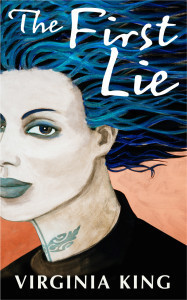
All new writers are advised to “write what you know” because sticking to your own experience is a recipe for authenticity, for not getting lost in unchartered territory. It goes hand in hand with character profiles and plot maps – nailing your story down so the writing is an exercise in fleshing out the bones. But are great stories pre-formed in the minds of their authors? And is this process fun?
Miles Davis told his musicians, “Don’t play what’s there, play what’s not there.” He wanted them to lose themselves, to let the music take them beyond the notes on the score, carrying their audience with them. Sounds like the same place we want to take our readers.
The Journey of a Thousand Steps
“There is something delicious about writing the first words of a story,” Beatrix Potter said. “You never quite know where they’ll take you.”
This is how I began my debut novel, The First Lie. I’d written a lot of children’s books so I knew how to write. What I didn’t know was how to create something as complex as a mystery for adults. I also had no idea what the book would be about so I couldn’t plot it. I sat down at a blank screen until one sentence came.
All she had to do was jump.
Follow the Energy
Kate Grenville says about writing the prize-winning Lilian’s Story: “I started work each day by glancing through some ‘interesting things’ … I’d allow the bits to suggest something that might have happened to my bag-lady character … and write without a plan, following thoughts and images into the unknown … The criterion was energy. If I felt energised in writing a fragment or a scene, I’d keep going.”
Kate was writing what she didn’t know, but after my own first sentence I started retelling my personal story thinly disguised by the third-person. Three chapters in, I literally fell face forward onto the keyboard – with boredom. Months later I returned because that first sentence wouldn’t let me go. There was a story here. Could I write it if I didn’t know what it was?
Undiscovered Fossils
Stephen King believes that “stories are found things like fossils in the ground … part of an undiscovered pre-existing world. It’s the writer’s job to … get as much of each one out of the ground intact as possible.”
This is the opposite of fleshing out the bones of a plot map – because with a fossil you don’t know how the bones fit together and you can only uncover them bit by bit. It takes more courage than plotting and it’s more fun. The unfolding story gets an unpredictable edge as you deal with one surprise after another, making connections while you’re asleep and trying to decipher your jottings in the morning.
When I returned to the novel, my first act of courage was to flip to the first person. Suddenly I was travelling with a different view – now I was on the roller-coaster – and it wasn’t long before my hat blew off.
Crossing the Border
Milan Kundera says, “The characters in my novels are my own unrealised possibilities … Each one has crossed a border which I myself have circumvented. Beyond that border begins the secret the novel asks about.”
Unrealised possibilities. Crossed a border. Begins the secret. He’s not talking about a plot map, he’s talking about the unknown. There’s no path to follow, there’s a trail to be blazed.
I was now inside the head of my main character, Selkie Moon. Her name took me to mythical places. The selkies are the Celtic seal people who peel off their skins and dance in the moonlight on human legs. The myth has always spoken to me, but Selkie was a modern woman needing a story. Julia Cameron provided guidance. “I don’t create characters,” she says. “I meet them.” It’s another angle on the fossil. I started excavating.
Until Something Pops
In A Novel in a Year (don’t worry it took her ten years to become a published author) Louise Doughty suggests visiting the places in your novel to reconnect with your settings and invigorate a stalled story. It did the opposite for me – it plunged me back into the unknown.
My novel was set in Sydney, my home town. The writing had lost momentum so I set out to visit all the main locations – the house Selkie had shared with her ex, her lowly flat, her favourite Chinese noodle bar, the cemetery where something bizarre happened. It was a long day on the road because I now live two hours out of town and when I got home I burst into tears. None of these places spoke to me.
The next courageous step took a while. The Sydney novel was dead, so in desperation I dropped Selkie Moon into a whole new place. Hawaii. Now she was on the run, a stranger in town, with quirky friends to make and a new culture to discover. Her predicament required much creative research. A Sydney girl with a Celtic name and a Chinese food fetish turning up on a Pacific island steeped in its own mythology. With that much pressure something had to “pop”. It did. I discovered ho’ohihi – interconnectedness – and a complex psychological puzzle started falling into place.
Not Control, Judgement
If you ditch the plot map for the roller-coaster, you’re choosing curiosity over control. The story will need taming – along with your hair – but that’s when you use your judgement and an editor as brave as you are. (The structural edit is another adventure. Not for the faint-hearted but not to be missed.) The resulting story will be bigger, more unpredictable and more satisfying than anything you could have plotted.
In Part 2, Virginia will detail practical tips for writing a book without a plot map. Watch out for this post coming soon.
Virginia King lives in the Blue Mountains west of Sydney. She’s a former award- winning publisher, the author of over fifty children’s books and the creator of several popular writing workshops. The First Lie is a psychological mystery, the first of a series introducing reluctant sleuth, Selkie Moon. Several reviewers have praised it as “genre-bending” and she attributes this to “writing what I don’t know”. The First Lie is available on Amazon: www.amazon.com/First-Lie-Selkie-Moon-Mystery-ebook/dp/B00K1VC20Y/
winning publisher, the author of over fifty children’s books and the creator of several popular writing workshops. The First Lie is a psychological mystery, the first of a series introducing reluctant sleuth, Selkie Moon. Several reviewers have praised it as “genre-bending” and she attributes this to “writing what I don’t know”. The First Lie is available on Amazon: www.amazon.com/First-Lie-Selkie-Moon-Mystery-ebook/dp/B00K1VC20Y/
Virginia blogs weekly about writing and publishing in La Bloguette – short newsy posts guaranteed: www.selkiemoon.com You can also follow her here: https://www.facebook.com/selkiemoonmysteries & https://twitter.com/selkiemoonbooks
Her editor is Nicola O’Shea www.ebookedit.com.au
The post Write What You DON’T Know (Part One) appeared first on Elizabeth Spann Craig.
August 9, 2014
Twitterific Writing Links
by Elizabeth S. Craig, @elizabethscraig
Twitterific links are fed into the Writer’s Knowledge Base search engine (developed by writer and software engineer Mike Fleming) which has over 23,000 free articles on writing related topics. It’s the search engine for writers.
Direct Sale Venues For Authors: http://ow.ly/zZKWz @mollygreene
Hidden Emotions: How To Tell Readers What Characters Don’t Want To Show: http://ow.ly/zZLxB @angelaackerman
8 Story Fixes http://ow.ly/A1A7n @JaredMGordon
Microsoft Word versus Apple Pages: —A comparative review: http://ow.ly/A1B5P @ScottTheWriter
Use Index Cards to Plan Your Story: http://ow.ly/A1BBp @sarawhitford
The Effectiveness of Free eBooks is Declining: http://ow.ly/A1A1N @galleycat @markcoker
Quick Tips: Scene Breaks: http://ow.ly/A1BHS @Savage_Woman
Writing Beware: http://ow.ly/A1Bg6 @MarlanaAntifit
3 Paths to High Concept: http://ow.ly/A1AhP @JaredMGordon
When multiple POV stories work best: http://ow.ly/A1zCi from Clever Girl Helps
Google Docs Adds Track Changes for Editing: Here’s How to Use It: http://ow.ly/A1AYs @CordeliaCallsIt
5 Free Apps that Help You Write Your Novel: http://ow.ly/A1AJ4 @Wiseink
How to Create, Publish, and Market an Anthology (and why you’d want to): http://ow.ly/A1Fq2 @JMNeyGrimm
How To Justify Spending Lots of Time Writing Before Publication: http://ow.ly/A1En5 @jodyhedlund
Are your critiques as helpful as they could be? http://ow.ly/A1CUH @jenmalonewrites
5 Ways to Get Motivated to Write: http://ow.ly/A1DwV @YAMuses @tbethhull
Worldbuilding: Don’t Neglect The Landscape: http://ow.ly/A1CrT @G_R_Matthews
5 Essential Questions to Ask When Writing Your Protagonist: http://ow.ly/A1DnI @bridgetmcnulty
15 Questions Authors Should Ask Characters: http://ow.ly/A1BM5 @writers_write
Tips for Collecting People: http://ow.ly/A1Fjh @LiesaMalik
How to be a Better Writer: Be Empathetic: http://ow.ly/A1Dhp @ErinMFeldman
We know about beta readers. Why we may also need beta holders: http://ow.ly/A1CLi @michaelnmarcus
6 Reasons You Don’t Want a Free WordPress.com Blog: http://ow.ly/A1CEq @ninaamir
Think Like a Publisher: The Early Decisions | http://ow.ly/A1D8P @deanwesleysmith
Tips for Children’s Writing: http://ow.ly/A1Cxi @MaryVeeWriter
Script To Screen: “The Princess Bride”: http://ow.ly/A3I6p @gointothestory
5 Research Steps Before Writing Your Book Proposal http://ow.ly/A3Irj @Janefriedman
5 Reasons To Cast Your Novel: http://ow.ly/A3GbJ @Figures
6 Things Writers Need to Know About Email Marketing: http://ow.ly/A3G4G @JordynRedwood
The Benefits Of Crowdfunding For Authors : http://ow.ly/A3Iay @thewritplatform
For Beginners: 5 Things to Know When Writing a Novel: http://ow.ly/A3FS5 @WritersEdit
6 Things You Shouldn’t Expect From Your Agent: http://ow.ly/A3Iya @carlywatters
Make a 1-3-5 List for a Faster, Instantly-Prioritized To-Do List: http://ow.ly/zZKwW @lifehacker
Picking the right word (it’s okay to use a thesaurus/etymological dictionary): http://ow.ly/zZL6B @JulietteWade
Mark Coker’s Tips On Selling More Books: http://ow.ly/zZLul @woodwardkaren
7 Ways to Tighten Your Prose: http://ow.ly/zZLnV @DanKoboldt
Making Characters Face Their Demons: http://ow.ly/zZKZc @mooderino
Issues with the First Person Perspective: http://ow.ly/zZKBm @shay_goodman
3 Fun Elements to Add to Your Mystery: http://ow.ly/A6nkV @MasonCanyon @penguincozies
What if the perfect eBookstore already exists? http://ow.ly/A51RI @Porter_Anderson @arthurattwell
Traits that make a devious but delectable anti-hero: http://ow.ly/zZIQn @msheatherwebb
ISBNs: The single most important action item for self-publishers: http://ow.ly/zZIHO @MissAdventuring
How to Find Time to Write and Parent Children Too: http://ow.ly/zZJ2p @livewritethrive
Are You Showing or Telling Your Internalization? http://ow.ly/zZJLD @Janice_Hardy
5 Classic Authors Who Hated Their Book Covers: http://ow.ly/zZKeD @litreactor
A Simple Way To Get More Shares On Social Media: 9 Tools To Help You: http://ow.ly/zZJSJ @writetodone
The Authors’ Wish List Goes In: How Will The Guild Council Respond? http://ow.ly/A51jf @Porter_Anderson @thoughtcatalog
5 People You Need on Your Team When You Self-publish a Kids’ Book: http://ow.ly/zZIuw @JFBookman
Things to Keep Out of Your Author Bio: http://ow.ly/zZJGG @brrbach
A good story is the secret to writing a commercial hit: http://ow.ly/zZJkP @sjaejones
Thoughts from the Intern Slush Pile: Is Your Voice Up to Snuff? http://ow.ly/zZJNb @ava_jae
The appeal of writing mysteries set in small towns: http://ow.ly/A3AoZ @MariesCozy
90 Words for “looks”: http://ow.ly/zX0y9 @gointothestory
What Should a Strong Authors’ Advocacy Group Be Doing? |Smart Set: http://ow.ly/A3KYE @Janefriedman
A perfect e-bookstore? http://ow.ly/A3GnK @Porter_Anderson @TheFutureBook
A Metaphor for Publishing: http://ow.ly/zWZ99 @deanwesleysmith
How to Pace Your Story: http://ow.ly/zWZ7W @shalvatzis
Tips for Finding Your Writing Groove Again: http://ow.ly/zWZtB @jawardwrites
115 Words for “walks”: http://ow.ly/zWZbj @gointothestory
More about the “Strong Female Character”: http://ow.ly/zWZMV @AlmaAlexander
Great Character: Axel Foley (“Beverly Hills Cop”): http://ow.ly/zWZIO @gointothestory
Crime Writing–Resources: RP and Writing http://ow.ly/zX0dl
Drawing Character Inspiration From Game Mechanics: http://ow.ly/zWZzi @mythcreants
How to Split Up Series: (The Prequel) http://ow.ly/zWZwt
Should You Hire an Editor Before Querying? Agents Weigh In: http://ow.ly/zX0jS @lisagailgreen
On horror and specialty presses: http://ow.ly/zX0lX @washingtonpost
5 Ways to Build Stronger Characters: http://ow.ly/zX0ik @mythicscribes
The Look of Your Amazon Book Page Matters: http://ow.ly/zX0p6 @gpstberg
How To Tell A Scary Story: 8 Tips: http://ow.ly/zWZHI @woodwardkaren
3 Tips for Writing While on a Family Vacation: http://ow.ly/zWZFQ @DanaLeipold
Hostage Negotiations: Information for Writers: http://ow.ly/zWZ5e @MatthewSherley
Tools 1 Writer Uses for Writing, Publishing & Blogging: http://ow.ly/zWZCV @Belinda_Pollard
Turning Novels into Screenplays: http://ow.ly/zX001 @storyfix
The Pomodoro Technique: Time Management for Writers: http://ow.ly/zWZVB @womenonwriting
Literary Terminology: http://ow.ly/zWZKI @Writers_Write
Top 10 Great Things about Writing Cozy Mysteries: http://ow.ly/A0Qry @lorisbookblog @penguincozies
5 Things You Should Never Say to an Indie Author: http://ow.ly/zU2Rf @SbethCaplin
How to Create Box Sets at Smashwords for Audience Building, Charity and Profit: http://ow.ly/zU4or @markcoker
A Book of Tweets By People Claiming They’re Working on Their Novels http://ow.ly/zU2UX @awalkerinLA @Gizmodo
The Keys to a Great Opening Scene: http://ow.ly/zU3mC @mythcreants
Indie author wish-lists for the Authors Guild: http://ow.ly/zZFLX @Porter_Anderson @Roz_Morris @RicardoFayet
How Smooth Transitions Keep Your Story Moving: http://ow.ly/zU3ij @angelaackerman
4-Point Commercial Book Checklist http://ow.ly/zU2Jw @VictoriaLamb1
How to Become a Better Writer in One, Simple Step: http://ow.ly/zU4fC @joebunting
How To Sell Books And Products Direct To Customers: http://ow.ly/zU2SA @thecreativepenn
What Dickens, Austen, Faulkner, and the Brontes Can Teach Us About Writing: http://ow.ly/zU31j @kmweiland
Writing Tips by J.K. Rowling: http://ow.ly/zU2OU @Nicholas_Rossis
When to Cut That Scene: http://ow.ly/zU3ov @mythcreants
Write What You Want to Read: http://ow.ly/zU2Zc @ava_jae
The Art of Poetic Space: http://ow.ly/zU3fZ @theprosecons
Why 1 Writer Made A Huge Mistake Marketing Her Books (And How to Avoid It): http://ow.ly/zU3K9 @JuliPageMorgan
Beyond Spellcheck: 6 Errors that Kill Your Story: http://ow.ly/zU4jK @bonniehearnhill
Don’t Look Back on Your Writing Journey With Regrets: —9 Things to Avoid: http://ow.ly/zU3Es @ediemelson
Do authors really want to get along? Why indie authors should consider joining US Authors Guild: http://ow.ly/zUQxS @Porter_Anderson
Free Books: Marketing Genius or Devaluation of Writers? http://ow.ly/zNZSI @LorraineDWilke
What could happen if we end up with smart eBooks: http://ow.ly/zO2Se @gripemaster
Why Sales Numbers and Platform Aren’t as Important as Publishers Think: http://ow.ly/zO1gd @JanetKGrant
The 4 Different Types of Conflict in Dialogue: http://ow.ly/zO1u3 @kmweiland
The unreliable narrator: http://ow.ly/zO1px @nownovel
Making the Leap from Historical Author to Mystery Author: http://ow.ly/zWAmp @heatherdgilbert
Does Your Series Tell a Bigger Story? http://ow.ly/zO43g @susanspann
How to Make the First Cut in a Writing Contest: http://ow.ly/zO01O @TheReviewReview
6 Tips to Champion Your Story: http://ow.ly/zUPSO @LyndaRYoung
How much detail and description to incorporate into a story?: http://ow.ly/zUPfQ @JacksBlackPen
The Persistent Stigma of Self-Publishing: http://ow.ly/zO0nW @janice_hardy
A crime fiction writer’s tips for outlining a mystery: http://ow.ly/zUORP @megwolfewrites
Why we should ignore the superlatives on book jackets: http://ow.ly/zNYU1 @nathanfiler
Ramp up your writing speed: http://ow.ly/zO1Ei @nicolapittam
Backstory: Who do you think you are? http://ow.ly/zUOkH @clarissadraper
Martin Scorsese Breaks Down the Difference Between Story & Plot: http://ow.ly/zO2JC @nofilmschool
Don’t Overstuff Your Verbs: Unpack: http://ow.ly/zO46C @mooderino
Making Time to Write: 4 Tips From a Writing Superstar: http://ow.ly/zO2rH @MiaJouBotha
8 Ways For Self-Published Authors to Rise Above Their Fear of Metadata: http://ow.ly/zNZHd @ebooksandkids
Cockeyed Caravan: Storyteller’s’ Rulebook: Your Ending Shouldn’t Make Your “Point” http://ow.ly/zNZLB @cockeyedcaravan
Pacing: —adding intrigue to your writing: http://ow.ly/zO3SE @LisaMBasso
10 Tips to End Writer’s Block Procrastination | Psychology Today: http://ow.ly/zO170
Dive Deeper: Slow & Steady Writing: http://ow.ly/zLoim @JordanRosenfeld
On ‘Literary Bests’: http://ow.ly/zLnY3 @ursulaleguin
How To Format A Manuscript To Publishing Industry Standards: http://ow.ly/zLoo6 @jenmalonewrites
How Soon Do We Need to Show Genre in Our Novels? http://ow.ly/zLnkZ @Janice_Hardy
Hellman’s Rule of Beginnings: http://ow.ly/zLneo @write_tomorrow
5 People Watching Tips: http://ow.ly/zLntY @jemifraser @WriteAngleBlog
What Makes a Good Horror Story? Indie Games Have the Answer: http://ow.ly/zLmNV @indiewire
How to Get Organized to Write Your Nonfiction Book Quickly: http://ow.ly/zLlOZ @WriteNowCoach
The post Twitterific Writing Links appeared first on Elizabeth Spann Craig.
August 8, 2014
Three Fun Elements to Add to Your Mystery
by Elizabeth S. Craig, @elizabethscraig
One thing that I love about writing mysteries is that they’re so much fun to write. In my guest post today for Mason Canyon at the Thoughts in Progress blog, I explore three elements that I think are as fun for mystery readers as they are for mystery writers. Hope you’ll pop over.
The post Three Fun Elements to Add to Your Mystery appeared first on Elizabeth Spann Craig.

